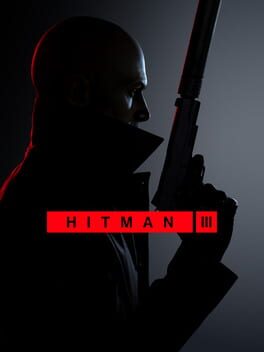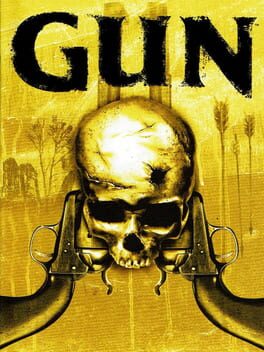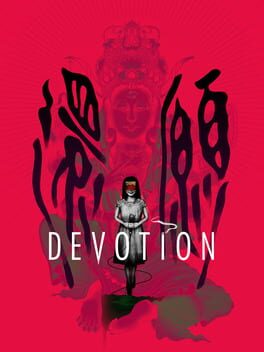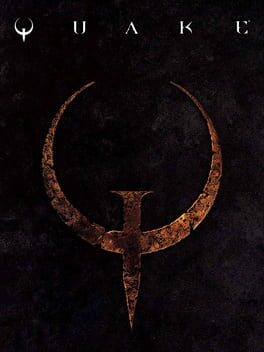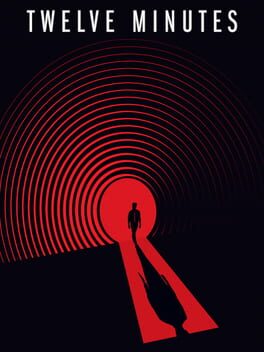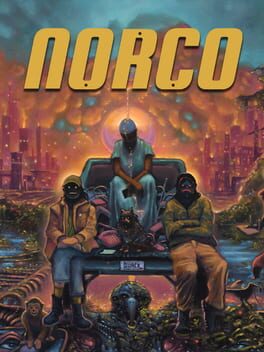zachmaycry
94 Reviews liked by zachmaycry
Hitman 3
2021
The third entry in what would become known as the "World of Assassination trilogy" certainly has the absolute strongest levels in the series. Dartmoor and Berlin present compelling twists on the core formula that expand upon the core of what makes it compelling: it presents levels as living worlds, intricate clockwork dollhouses that the player can poke to see what happens. Dubai and Ambrose Island are excellent bread-and-butter Hitman levels, which is crucial for making the game feel whole. And Chongqing stands out as having possibly the best background character writing in a series which is known for excellent background character writing.
(Mendoza is mostly there, but suffers from a few odd mismatches between how it signals the player to play and the modes of play it actually offers. It's certainly fun for the most part, but feels decidedly less baked than the rest of the game.)
The only serious drag on this game is its increased interest in linearity in service of plot. Although I think the plot itself is well-done, the way it intersects with the game itself—the escape sequence the first time you play Chongqing and the whole of Carpathian Mountains—doesn't play to the series's strengths. Hitman is intrinsically a non-linear experience that excels at creating a holistic view of a story through glimpses of small moments and conversations. Trying to force that into straightforward "move through these zones and solve these puzzles" mechanics weakens the storytelling and leads to uninteresting zones. But fortunately, that's a small part of this otherwise excellent capstone to one of my favorite series.
(Mendoza is mostly there, but suffers from a few odd mismatches between how it signals the player to play and the modes of play it actually offers. It's certainly fun for the most part, but feels decidedly less baked than the rest of the game.)
The only serious drag on this game is its increased interest in linearity in service of plot. Although I think the plot itself is well-done, the way it intersects with the game itself—the escape sequence the first time you play Chongqing and the whole of Carpathian Mountains—doesn't play to the series's strengths. Hitman is intrinsically a non-linear experience that excels at creating a holistic view of a story through glimpses of small moments and conversations. Trying to force that into straightforward "move through these zones and solve these puzzles" mechanics weakens the storytelling and leads to uninteresting zones. But fortunately, that's a small part of this otherwise excellent capstone to one of my favorite series.
Pentiment
2022
There is a pattern with very few exceptions in the way I experience modular narrative games. The beginning of the game lays out a structure—the game's mechanical thesis—and I begin to understand ways in which that structure can be used to tell brilliant intertwining stories in ways that haven't been possible before. And then, inevitably, as I begin to approach the end of the game, I realize that it will not live up to the promise of its own structures, and however beautifully it weaves its story it will live in the shadow of what could have been.
Pentiment's story is doubtlessly beautiful. It takes a small town in an unglamorized time in history and tells a gripping tale that combines religion, politics, and humanity together as deftly (and with as much research) as any lauded novel of historical fiction. The comparison to Middlemarch is perhaps obvious, but well-earned. And it gives the player ample opportunity to influence characterization without making the protagonist a cipher with no personality of his own.
In the beginning, Pentiment tries to give the player a similar level of control of the narrative with a brilliant structure in which the player is presented with a buffet of choices of what to investigate and who to dine with, but with only a few days to allocate between them so that many paths remain unexplored. Allowing a single playthrough to miss major chunks of content is absolutely necessary for a narrative game to truly be modular, and this structure facilitates that while also presenting the player with a meta-puzzle across multiple playthroughs: learn what each of these events gets you, what information you get or friendships you make, and what is duplicated across different events. Combine this with the player's chosen traits and dialog options opening or closing different paths, and then hide the heart of the game within this web so that only by deeply understanding the town outside the minds of the protagonist—by becoming in a way its protector-saint—can you truly understand its secrets and navigate its innermost channels.
Despite creating a structure in which this is possible, a genuinely inspired combination of Inkle games and dating sims, Pentiment instead lets this structure fall by the wayside to the extent that the last third of the game is almost completely on rails—the player can and probably will see everything the game has to offer at that point, no matter what. Although the narrative is still marvelous it's no longer modular, and it only functions as a game within the scope of a few conversations and the player's trudging between screens.
And, oh, what trudging it is. Although I mourn for its unfulfilled potential and there are increasingly many glitchy moments or unedited lines as the game goes on (the result of a rushed end of production?), the truest deepest flaw of Pentiment is surely the amount of time a dedicated player will simply spend moving from screen to screen. In every hour any part of the map could have a new event or new dialog—but almost none actually do. There are just precisely enough that the player is motivated to check everywhere over and over again, wasting cumulative hours of real human time.
But if Pentiment's mechanics are a little underconsidered and their quality occasionally slapdash, it's still a miracle that it exists at all. I never thought I'd see a AAA studio, a Microsoft subsidiary no less, make something like this that is so openly in conversation with this genre which has for decades been exclusively the territory of indie games (and indeed was rarely a big name there either). I dearly hope that this helps legitimize that space and expands both its popularity and marketability, and I dream as I always have of the day when someone makes a game that truly grasps the potential towards which games like Pentiment extend their hands.
Pentiment's story is doubtlessly beautiful. It takes a small town in an unglamorized time in history and tells a gripping tale that combines religion, politics, and humanity together as deftly (and with as much research) as any lauded novel of historical fiction. The comparison to Middlemarch is perhaps obvious, but well-earned. And it gives the player ample opportunity to influence characterization without making the protagonist a cipher with no personality of his own.
In the beginning, Pentiment tries to give the player a similar level of control of the narrative with a brilliant structure in which the player is presented with a buffet of choices of what to investigate and who to dine with, but with only a few days to allocate between them so that many paths remain unexplored. Allowing a single playthrough to miss major chunks of content is absolutely necessary for a narrative game to truly be modular, and this structure facilitates that while also presenting the player with a meta-puzzle across multiple playthroughs: learn what each of these events gets you, what information you get or friendships you make, and what is duplicated across different events. Combine this with the player's chosen traits and dialog options opening or closing different paths, and then hide the heart of the game within this web so that only by deeply understanding the town outside the minds of the protagonist—by becoming in a way its protector-saint—can you truly understand its secrets and navigate its innermost channels.
Despite creating a structure in which this is possible, a genuinely inspired combination of Inkle games and dating sims, Pentiment instead lets this structure fall by the wayside to the extent that the last third of the game is almost completely on rails—the player can and probably will see everything the game has to offer at that point, no matter what. Although the narrative is still marvelous it's no longer modular, and it only functions as a game within the scope of a few conversations and the player's trudging between screens.
And, oh, what trudging it is. Although I mourn for its unfulfilled potential and there are increasingly many glitchy moments or unedited lines as the game goes on (the result of a rushed end of production?), the truest deepest flaw of Pentiment is surely the amount of time a dedicated player will simply spend moving from screen to screen. In every hour any part of the map could have a new event or new dialog—but almost none actually do. There are just precisely enough that the player is motivated to check everywhere over and over again, wasting cumulative hours of real human time.
But if Pentiment's mechanics are a little underconsidered and their quality occasionally slapdash, it's still a miracle that it exists at all. I never thought I'd see a AAA studio, a Microsoft subsidiary no less, make something like this that is so openly in conversation with this genre which has for decades been exclusively the territory of indie games (and indeed was rarely a big name there either). I dearly hope that this helps legitimize that space and expands both its popularity and marketability, and I dream as I always have of the day when someone makes a game that truly grasps the potential towards which games like Pentiment extend their hands.
Although I loved Death Stranding when I played it through on release, I didn't really consider it a contender for my game of the year in The Year of Endless Bangers. I let three years slip by, not even booting it back up on the release of the Director's Cut, before ultimately using my new PS5 as an excuse to transfer the save and bang out a few more deliveries.
So much has changed for me in the intervening three years. Others have written at length about the pandemic and its thematic parallels with the game, so suffice it to say that for me (still largely housebound and isolated, increasingly alienated by the fever-pitch denial of the world at large) being able to enact a world where real people work together to build infrastructure and thereby heal the world has been personally healing in a way I couldn't have imagined in 2019.
My tastes as someone who thinks critically about games have changed as well. Death Stranding's preoccupation with the texture of play—from asking you to viscerally feel the geometry of the ground you walk on to showing painstakingly mocapped cutscenes of every little action in your private room—hits much harder now that I've played through the FromSoft canon which is itself texture-obsessed in a different direction. Coming directly off playing some AAA shlock, I also found myself with a renewed appreciation of this game's dialectic approach to a cinematic aesthetic, with carefully choreographed moments that nevertheless always emphasize play as the distinguishing factor that makes this decidedly not a movie.
I'm setting this down again not because I'm finished with it for good, but because I'm inducting it into the tier of games I intend to return to over and over again. I could happily finish out the DC plots and call it "finished", but what I really want is to create a kind of personal infrastructure I can use to bring myself back to this world, this textural landscape, whenever I need to feel that connection with people that this game so masterfully evokes.
So much has changed for me in the intervening three years. Others have written at length about the pandemic and its thematic parallels with the game, so suffice it to say that for me (still largely housebound and isolated, increasingly alienated by the fever-pitch denial of the world at large) being able to enact a world where real people work together to build infrastructure and thereby heal the world has been personally healing in a way I couldn't have imagined in 2019.
My tastes as someone who thinks critically about games have changed as well. Death Stranding's preoccupation with the texture of play—from asking you to viscerally feel the geometry of the ground you walk on to showing painstakingly mocapped cutscenes of every little action in your private room—hits much harder now that I've played through the FromSoft canon which is itself texture-obsessed in a different direction. Coming directly off playing some AAA shlock, I also found myself with a renewed appreciation of this game's dialectic approach to a cinematic aesthetic, with carefully choreographed moments that nevertheless always emphasize play as the distinguishing factor that makes this decidedly not a movie.
I'm setting this down again not because I'm finished with it for good, but because I'm inducting it into the tier of games I intend to return to over and over again. I could happily finish out the DC plots and call it "finished", but what I really want is to create a kind of personal infrastructure I can use to bring myself back to this world, this textural landscape, whenever I need to feel that connection with people that this game so masterfully evokes.
Hitman 2
2018
Hitman 2
2018
Hitman 2
2018
These games are pure catnip to me. The intricate clockwork dioramas of the level designs are made tactile and enthralling by allowing the player to wreak havoc within them and see what happens. In a lesser game even this premise could wear thin after a time, but IOI knows exactly how to wring every ounce of value out of the worlds they create, from the stories woven throughout to the escalations that reframe the levels to even just the quality of writing that makes it worth listening to all the little conversations between NPCs.
The level design in 2 is generally excellent: levels exist with different organizing principles, from multiple strongholds connected by a common area like Mumbai and Miami, to layered increases in security like New York and Sgàil, to the spectacularly iconoclastic Whittleton Creek. My biggest complaint is that the DLC special assignments are lackluster, generally smaller in scope than their Hitman 1 equivalents and substantially less transformative of the levels that contain them.
I'll also mention Freelancer mode here since I played it along with Hitman 2. The underlying concept there is genius, forcing players like me who take a save-heavy approach to the game to take a wildly different approach, think on our toes, and learn to use tools that may have just sat in the loadout screen. But at the same time, failure is often more frustrating than it is fun or educational. It's just too easy to take an action that looks safe only to trigger an alarm, get gunned down, and lose your entire campaign out of nowhere.
What Freelancer needs (and the rest of the game could certainly make profitable use of) is a little bit more indication of what is or is not allowed. Show me trespassing boundaries in focus mode. Let me know whether I'm being watched before I chuck an iron at a guard's head. Guessing and checking works well enough when saves are involved, but it's not quite up to the task for a mode with such heavy consequences.
(Played Hitman 2 levels and escalations in World of Assassination)
The level design in 2 is generally excellent: levels exist with different organizing principles, from multiple strongholds connected by a common area like Mumbai and Miami, to layered increases in security like New York and Sgàil, to the spectacularly iconoclastic Whittleton Creek. My biggest complaint is that the DLC special assignments are lackluster, generally smaller in scope than their Hitman 1 equivalents and substantially less transformative of the levels that contain them.
I'll also mention Freelancer mode here since I played it along with Hitman 2. The underlying concept there is genius, forcing players like me who take a save-heavy approach to the game to take a wildly different approach, think on our toes, and learn to use tools that may have just sat in the loadout screen. But at the same time, failure is often more frustrating than it is fun or educational. It's just too easy to take an action that looks safe only to trigger an alarm, get gunned down, and lose your entire campaign out of nowhere.
What Freelancer needs (and the rest of the game could certainly make profitable use of) is a little bit more indication of what is or is not allowed. Show me trespassing boundaries in focus mode. Let me know whether I'm being watched before I chuck an iron at a guard's head. Guessing and checking works well enough when saves are involved, but it's not quite up to the task for a mode with such heavy consequences.
(Played Hitman 2 levels and escalations in World of Assassination)
Hitman 2
2018
Hitman 2
2018
Did anyone else try the multiplayer in this? Not the sniper assassin minigame, but the actual, on-the-ground Agent 47 vs. somehow paler Agent 47 mode where you had to race an opponent to a target. It's not in the same realm of quality as the main game, but how could it be? These levels aren't designed for multiplayer, aren't designed for semi-random targets that wander around areas where the usual target is hunkered down, aren't designed to exist in an ecosystem where you can't hoard 600,000 muffins. That being said, I had some actual-ass fun playing it, which is more than I can say for most multiplayer affairs in recent years.
It only existed in the first two non-tutorial levels, Miami and Santa Fortuna - one of which is a pretty solid level, the other is among the worst in the trilogy, notable in the campaign for spreading 3 targets across three thirds of a map that is only one-third interesting. Two players spawn in with no equipment and are drip-fed a series of targets that do not normally exist in the level, and you are given a point if you can take them out without being detected, at which point the other player is given a couple seconds to do the same or forfeit the point. Equipment spawns in chests around the level - the first player gets their pick of three items, leaving only two for the other player.
While I never for one second considered playing this with an internet stranger, I did play tens of hours of this with an old high school friend, during which we took this game - a game whose single-player mode we had independently reduced to a digital chore list, noting each item's placement and coldly, surgically eliminating targets in increasingly efficient ways - and found new ways to plumb the depths of the other person's sociopathy. That's so weird that you don't have a silenced pistol yet, I've got six of them already. Are you waiting carefully, calculating the best time to poison the target? You have five seconds, I just gunned him down in broad daylight so you couldn't get the point. I hope you have the announcer voice off because I'm killing every single person in the level so that every target kill is undetected. I'm sprinting around behind you, throwing coins into your world so you can't play the game.
For some reason, IOI gave up on the unenviable task of adapting these levels for a multiplayer game mode that four people played, each of whom offered a resounding... "eh, not really my thing". Really a shame, to be honest, because it was a spectacularly interesting shitshow to play, and I think it only would've been more so if we got a chance to see levels like Mumbai or Whittleton Creek. I never expected Hitman to have that kind of up-too-late-during-the-sleepover multiplayer experience - the kind where you spend more time fucking over the other person and laughing than actually trying to play the game - but I've tasted it, and now I need more.
In all seriousness, it was intriguing to see IOI's attempts at tweaking these levels for non-standard game modes. Contracts mode is kind of self-moderating, since players ideally pick only the contracts that match the exact level of challenge they want. A real-time versus mode is a whole different beast, and while this was a decent stab at creating an alternate game mode, I'm mostly curious to see what lessons IOI takes from this for things like their upcoming Freelancer mode update for Hitman 3 or the as-yet-untitled James Bond game they're working on. In fact, I suspect that the success of Freelancer will largely depend on the lessons that they take from this. IOI have toyed with using limited replays to create stakes with the Elusive Target system, a system that still uses the traditional setup of giving each target a single, scripted path through the level. Creating stakes by having the level itself change every time you return is a different kind of challenge, and this alternate game mode is really the only thing I can think of that's similar within the Hitman series.
One the one hand, IOI has made a lot of baffling decisions over the years - I think Absolution is the easiest example of this, with IOI leadership openly admitting in interviews that they were chasing trends they had identified in other games to try and make Hitman more "modern". On the other, they seem to have really locked their focus in recent years on what's truly crucial to creating a Hitman game and have used their missteps in previous games/modes to make the core experience stronger. It's easy to forget that something that feels like a natural fit - the use of "Instinct" in the trilogy - began as a resource bar in Absolution that often made things harder to see and would show you the exact point on the map someone was walking to. Most of the PVP mode's most severe weaknesses have already been removed from the equation by virtue of Freelancer not being PVP, so I've got some confidence that IOI will be able to make something worthwhile out of the update. Not much left to do now but wait and see.
It only existed in the first two non-tutorial levels, Miami and Santa Fortuna - one of which is a pretty solid level, the other is among the worst in the trilogy, notable in the campaign for spreading 3 targets across three thirds of a map that is only one-third interesting. Two players spawn in with no equipment and are drip-fed a series of targets that do not normally exist in the level, and you are given a point if you can take them out without being detected, at which point the other player is given a couple seconds to do the same or forfeit the point. Equipment spawns in chests around the level - the first player gets their pick of three items, leaving only two for the other player.
While I never for one second considered playing this with an internet stranger, I did play tens of hours of this with an old high school friend, during which we took this game - a game whose single-player mode we had independently reduced to a digital chore list, noting each item's placement and coldly, surgically eliminating targets in increasingly efficient ways - and found new ways to plumb the depths of the other person's sociopathy. That's so weird that you don't have a silenced pistol yet, I've got six of them already. Are you waiting carefully, calculating the best time to poison the target? You have five seconds, I just gunned him down in broad daylight so you couldn't get the point. I hope you have the announcer voice off because I'm killing every single person in the level so that every target kill is undetected. I'm sprinting around behind you, throwing coins into your world so you can't play the game.
For some reason, IOI gave up on the unenviable task of adapting these levels for a multiplayer game mode that four people played, each of whom offered a resounding... "eh, not really my thing". Really a shame, to be honest, because it was a spectacularly interesting shitshow to play, and I think it only would've been more so if we got a chance to see levels like Mumbai or Whittleton Creek. I never expected Hitman to have that kind of up-too-late-during-the-sleepover multiplayer experience - the kind where you spend more time fucking over the other person and laughing than actually trying to play the game - but I've tasted it, and now I need more.
In all seriousness, it was intriguing to see IOI's attempts at tweaking these levels for non-standard game modes. Contracts mode is kind of self-moderating, since players ideally pick only the contracts that match the exact level of challenge they want. A real-time versus mode is a whole different beast, and while this was a decent stab at creating an alternate game mode, I'm mostly curious to see what lessons IOI takes from this for things like their upcoming Freelancer mode update for Hitman 3 or the as-yet-untitled James Bond game they're working on. In fact, I suspect that the success of Freelancer will largely depend on the lessons that they take from this. IOI have toyed with using limited replays to create stakes with the Elusive Target system, a system that still uses the traditional setup of giving each target a single, scripted path through the level. Creating stakes by having the level itself change every time you return is a different kind of challenge, and this alternate game mode is really the only thing I can think of that's similar within the Hitman series.
One the one hand, IOI has made a lot of baffling decisions over the years - I think Absolution is the easiest example of this, with IOI leadership openly admitting in interviews that they were chasing trends they had identified in other games to try and make Hitman more "modern". On the other, they seem to have really locked their focus in recent years on what's truly crucial to creating a Hitman game and have used their missteps in previous games/modes to make the core experience stronger. It's easy to forget that something that feels like a natural fit - the use of "Instinct" in the trilogy - began as a resource bar in Absolution that often made things harder to see and would show you the exact point on the map someone was walking to. Most of the PVP mode's most severe weaknesses have already been removed from the equation by virtue of Freelancer not being PVP, so I've got some confidence that IOI will be able to make something worthwhile out of the update. Not much left to do now but wait and see.
Gun
2005
I've always been curious about this game. Almost all of my peers at the time had played it, but for some reason I avoided it all these years. Now that I've finally played it, I can say that Gun feels more like a true prequel to Red Dead Redemption than Red Dead Revolver.
It's an open-world third-person shooter set in the Wild West. The map is relatively small, but on the plus side, you never spend that much time getting from point A to point B. In fact, you never spend that much time doing anything in this game: the story missions are quick to complete, and so are the side activities. This game doesn't waste your time, and you can easily finish it in a couple of hours. It could take longer if you decide to do all the side activities. As an added bonus, you can continue playing the game after completing the main story.
As for the main gameplay loop, it's very similar to Red Dead Redeption, but obviously with less budget and ambition behind it. However, I'm willing to bet money that Rockstar took a page or two from Gun when designing RDR. I'm convinced that RDR would not have turned out the way it did without Gun.
Shooting feels really satisfying, and as you unlock new weapons, you start to feel really powerful. By the end of the game, it's almost impossible to die on normal difficulty.
It's a shame that the PC port is really bad. The performance isn't that great as it's stuck at 30fps. It's based on the original Xbox version, which means you won't get all the graphical benefits of the Xbox 360 version. There are also many graphical artifacts, such as no mipmapping, open polygon faces, visible texture seams, and so on.
I had a lot of fun with Gun, and I'd definitely recommend it to anyone looking for a solid open-world title. I'd especially recommend it to fans of the RDR series.
It's an open-world third-person shooter set in the Wild West. The map is relatively small, but on the plus side, you never spend that much time getting from point A to point B. In fact, you never spend that much time doing anything in this game: the story missions are quick to complete, and so are the side activities. This game doesn't waste your time, and you can easily finish it in a couple of hours. It could take longer if you decide to do all the side activities. As an added bonus, you can continue playing the game after completing the main story.
As for the main gameplay loop, it's very similar to Red Dead Redeption, but obviously with less budget and ambition behind it. However, I'm willing to bet money that Rockstar took a page or two from Gun when designing RDR. I'm convinced that RDR would not have turned out the way it did without Gun.
Shooting feels really satisfying, and as you unlock new weapons, you start to feel really powerful. By the end of the game, it's almost impossible to die on normal difficulty.
It's a shame that the PC port is really bad. The performance isn't that great as it's stuck at 30fps. It's based on the original Xbox version, which means you won't get all the graphical benefits of the Xbox 360 version. There are also many graphical artifacts, such as no mipmapping, open polygon faces, visible texture seams, and so on.
I had a lot of fun with Gun, and I'd definitely recommend it to anyone looking for a solid open-world title. I'd especially recommend it to fans of the RDR series.
Devotion
2019
Really interesting and diferent game.
It tells the story of a father who has an ill daughter and the sacrifices he does for her, mainly related with religious taiwanese traditions.
The location is just a house where we see the evolution it had during the 80s as well as the family story. That location has a great design, every little detail makes it feel really true and believable, I miss this aspect in many videogames.
The other virtue it has and the one that compensates a more conventional gameplay is that the way of telling things feel very artistic / cinematic. I'm a big fan of movies from Taiwan (my username comes from Rebels of the Neon God) and even if it couldn't be compared with arthouse movies a game like Devotion is not the usual way of telling things, of creating moods and ambients not only related with the screenplay as it often happens; it would be good to have more games following this path.
About the horror aspect, Devotion is more related with a dark / sadness feeling that permeates everything.
It tells the story of a father who has an ill daughter and the sacrifices he does for her, mainly related with religious taiwanese traditions.
The location is just a house where we see the evolution it had during the 80s as well as the family story. That location has a great design, every little detail makes it feel really true and believable, I miss this aspect in many videogames.
The other virtue it has and the one that compensates a more conventional gameplay is that the way of telling things feel very artistic / cinematic. I'm a big fan of movies from Taiwan (my username comes from Rebels of the Neon God) and even if it couldn't be compared with arthouse movies a game like Devotion is not the usual way of telling things, of creating moods and ambients not only related with the screenplay as it often happens; it would be good to have more games following this path.
About the horror aspect, Devotion is more related with a dark / sadness feeling that permeates everything.
Quake
2021
Asura's Wrath
2012
So I finished a second playthrough to elaborate on some thoughts for the video since this game isn't too long and I thought I'd share some things I didn't really discuss cause I couldn't find a good way to integrate it with what the video in full is really about.
While my thoughts on the story are mostly the same I will say I did budge more on specifically the way the game uses and validates wrath and anger as valid emotions that can lead to great change and genuine revolution. We're told day by day and bit by bit that anger is something that we should try to avoid and generally I agree especially if its just anger for the sake of it like the game itself does. When Asura loses complete control he's not pointed towards any goal or target he's just generally going at it.
When he's under control and his wrath is far more focused he's able to accomplish so much especially when he motivates others to encourage their wrath to drive them to be the change they wanna see in the universe. Anger and wrath are drivers to revolutionary cause and I think the way this game touches upon that within its bombastic shonen anime showiness is magnificent.
Also wow yeah I think the JP dub is better honestly. The English VA's aren't terrible but some just don't really fit their characters well imo. Asura and Yasha are great but characters like Deus and Augus just feel bizarrely stiffly performed. So personally whenever I play this again I'll just stick with the JP voices cause I think they perfectly match the vibe of every character.
Anyway, here's the video if ya wanna go check that out! I'm really proud of it and I hope ya'll dig it!
While my thoughts on the story are mostly the same I will say I did budge more on specifically the way the game uses and validates wrath and anger as valid emotions that can lead to great change and genuine revolution. We're told day by day and bit by bit that anger is something that we should try to avoid and generally I agree especially if its just anger for the sake of it like the game itself does. When Asura loses complete control he's not pointed towards any goal or target he's just generally going at it.
When he's under control and his wrath is far more focused he's able to accomplish so much especially when he motivates others to encourage their wrath to drive them to be the change they wanna see in the universe. Anger and wrath are drivers to revolutionary cause and I think the way this game touches upon that within its bombastic shonen anime showiness is magnificent.
Also wow yeah I think the JP dub is better honestly. The English VA's aren't terrible but some just don't really fit their characters well imo. Asura and Yasha are great but characters like Deus and Augus just feel bizarrely stiffly performed. So personally whenever I play this again I'll just stick with the JP voices cause I think they perfectly match the vibe of every character.
Anyway, here's the video if ya wanna go check that out! I'm really proud of it and I hope ya'll dig it!
Twelve Minutes
2021
Norco
2022
Norco is everything I had hoped Kentucky Route Zero would be. I cannot get over how well written this game is. Every glittering moment of this script feels so honest and evocative, and there is such wonderful restraint in the pacing, in the humor, in the “minigames,” and in the weirdness. Weirdness, when wielded by incapable hands, can drain meaning from its narrative surroundings. When tastefully applied as it is here, however, weirdness has a capacity to deepen and give nuance to the people and emotions anchoring a story, in seemingly inexplicable ways. This work is a triumph for writing in games
